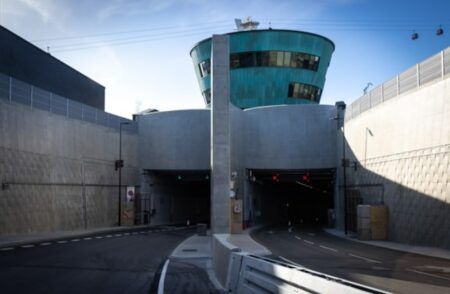The Toyota Mobility Foundation (TMF) has completed an inaugural project to mitigate traffic congestion in Thailand’s capital, Bangkok, and released the outcomes of the program.
The project began in April 2015 with a grant of ¥400m (US$3.2m) to Chulalongkorn University. The team implemented six measures to help control the amount of traffic and manage its flow in the Sathorn Road district of Bangkok, where a variety of factors create heavy congestion. These measures provided a guideline for cross-sectoral collaboration and comprise:
Establish a Park & Ride system to promote the use of public transportation;
Provide a shuttle bus service to local schools to reduce the number of private cars dropping off and picking up students;
Build an information system through a mobile application to promote use of the Park & Ride, and determine best routes with shortest commuting times;
Promote flexible work hours among local companies to stagger commuting times to avoid a concentration of traffic volume;
Identify bottlenecks through traffic simulation analysis and the introduction of solutions such as exclusive bus lanes and no parking zones;
Optimize traffic signals with digital support tools adopted by the local police.
In June 2016, during a two-week trial period, the team implemented additional measures, such as reversible lanes for use during peak congestion hours, and bus stop relocations. The team then evaluated each scheme, measuring traffic flow. To continue the resulting congestion reductions, the team formulated the measures into a Roadmap to aid cooperation across companies, government, and academia, which has now been proposed to an advisory body of the Thai government.
“In this project, we have not only been supported by the University, but also by the city of Bangkok, the local police, citizens and many companies,” said TMF’s chairman, Akio Toyoda. “I am pleased that TMF, which aims to work closely with local communities, was able to cooperate with regional entities. I would like to make use of the knowledge gained through this project for the future activities of TMF and contribute to development of a more mobile society.”
Chulalongkorn University Dean of Faculty of Engineering, Professor Supot, said, “This is a project to find sustainable mobility systems for cities that reduce travelling time, expense, energy consumption, and environmental issues. It is important to utilize knowledge and technology for traffic management and collaborate across all sectors. I believe that this project demonstrates a case of a sustainable mobility system though the Roadmap.”




